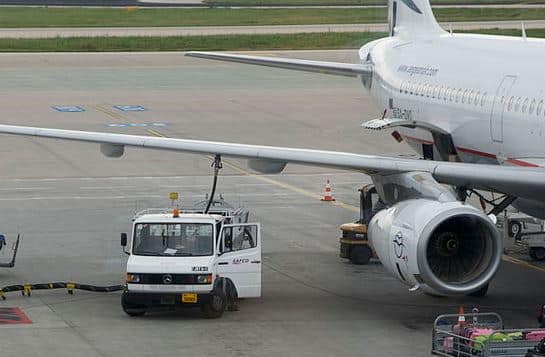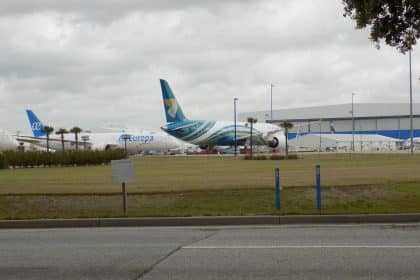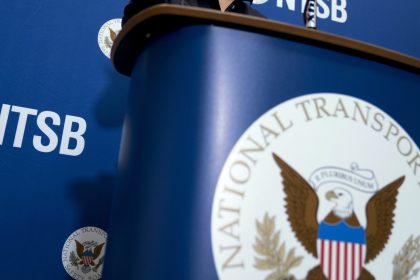Brownley, Schneider, Kildee Introduce Tax Credit Bill for Sustainable Aviation Fuel

WASHINGTON — Reps. Julia Brownley, D-Calif., Brad Schneider, D-Ill., and Dan Kildee, D-Mich., announced Thursday on a press call with industry stakeholders the introduction of new legislation that would incentivize the airline industry to utilize sustainable aviation fuel.
The bill, entitled the “Sustainable Skies Act,” would provide a $1.50 blenders tax credit for alternative fuel that exhibits a reduction of at least 50% in greenhouse gas emissions over its life cycle compared to conventional jet fuel. Scheider, one of the bill’s cosponsors, said the bill represents a “huge leap forward” in reducing the aviation industry’s carbon emissions.
“This legislation also has significant environmental safeguards that would exclude Palm Fatty Acid Distillates as a feedstock based on its profoundly detrimental environmental record,” Schnieder said during the call. “All fuels would need to abide by the sustainability criteria outlined by the International Civil Aviation Organization or a methodology the EPA determines is as stringent in order to be eligible for the credit.”
Sustainable aviation fuel producers have demonstrated their preparedness to meet the industry’s demand for the fuel, but Schneider said there is still a need for better investment to help the producers scale up in order to meet their goals. The legislation has garnered support from aviation industry stakeholders, environmental groups, fuel producers and organized labor leaders.
Commercial aviation accounts for roughly 3% of global greenhouse gas emissions, the majority of which derives from the combustion of jet fuel, Kildee said during the call. The bill’s provisions are designed to not only promote domestic production of sustainable aviation fuel but also provide economic incentives for doing so.
“Look, we know climate change is real, it’s a present danger to our country,” Kildee said. “We’ve got to do all we can do to address it, and that’s why I’m proud to support the Sustainable Skies Act. It takes the threat of climate change seriously by addressing one of the largest greenhouse gas emitters — and that’s jet fuel.”
The bill has been endorsed by climate groups like the Environmental Defense Fund and the World Wildlife Fund in addition to industry groups like United Airlines and Airlines for America. The bill’s support from both environmental groups and industry stakeholders shows sustainable aviation fuel policy can be a “win” for both the climate and the economy, Brownley said during the call.
A companion bill has been filed by Sen. Sherrod Brown, D-Ohio, Brownley said. Although it remains unclear if any Republicans will sign on to legislation, Schneider said during the call the representatives were working on building bipartisan support for its passage.
“Because (sustainable aviation fuels) can both reduce emissions by up to 80% over traditional fuels and be dropped into the fuel tanks of existing aircraft, it can provide an immediate climate impact to our existing aviation system,” Brownley said. “All that’s missing is crucial government support to help grow the burgeoning (sustainable aviation fuels) industry at the pace needed to meet our climate goals. That’s why I first introduced the Sustainable Aviation Fuel Act last fall which includes a number of different policy options to help stand up this promising alternative fuel — including a blenders tax credit.”
























